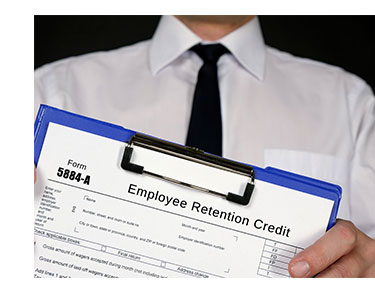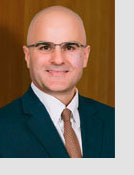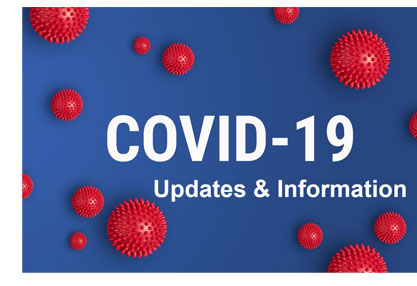 |
THIS ISSUE'S HEADLINES
Considerations in Purchasing a Unionized Business
Employee Retention Tax Credit: IRS Provides Additional Guidance for 2021 Q3 And Q4
Calendar of Upcoming Webinars Featuring PLDO Attorneys
Stay Informed — PLDO COVID-19 Resource Library

CONSIDERATIONS IN PURCHASING A UNIONIZED BUSINESS
 When a buyer decides to acquire a unionized business that is subject to the terms of a collective bargaining agreement, it is important for the buyer to take steps prior to the closing so that it can protect its rights vis-ą-vis the unionized employees of the seller. Of utmost concern is how the transaction is structured. For example, structuring the transaction as a stock acquisition versus an asset transaction could make a difference for the buyer as it relates to the status of the seller’s obligations to the union. If the acquisition is structured as a stock transfer, the acquiring company “steps into the shoes” of the target and is obligated to abide by the terms of the existing collective bargaining agreement. If, however, the acquisition is structured as an asset transaction, it is possible that the acquiring entity may not be obligated to assume the existing collective bargaining agreement, or even recognize the union. When a buyer decides to acquire a unionized business that is subject to the terms of a collective bargaining agreement, it is important for the buyer to take steps prior to the closing so that it can protect its rights vis-ą-vis the unionized employees of the seller. Of utmost concern is how the transaction is structured. For example, structuring the transaction as a stock acquisition versus an asset transaction could make a difference for the buyer as it relates to the status of the seller’s obligations to the union. If the acquisition is structured as a stock transfer, the acquiring company “steps into the shoes” of the target and is obligated to abide by the terms of the existing collective bargaining agreement. If, however, the acquisition is structured as an asset transaction, it is possible that the acquiring entity may not be obligated to assume the existing collective bargaining agreement, or even recognize the union.
It is also important for the buyer to carefully analyze how it intends to operate well before the company takes over the operations, so it can potentially make strategic decisions and not inadvertently waive any rights. Buyers also should weigh the differences in operating a union versus non-union facility as it relates to everyday operations relative to interactions with the bargaining unit employees when it comes to hiring, promotions and employee terminations.
These issues are only a few of the many considerations buyers should be mindful of that PLDO Managing Principal Gary R. Pannone describes in his advisory, Considerations in Purchasing a Unionized Business. The essay offers a thorough review of why and how failure to consider all the factors and differences before the transaction is closed may trigger unnecessary liability and tension in the workforce that have long-lasting effects on the successful operation of the business. For further information about buying or selling a business with or without a unionized workforce, or other business matters, please contact PLDO Managing Principal Gary R. Pannone at 401-824-5100 or email gpannone@pldolaw.com.
[back to top]

EMPLOYEE RETENTION TAX CREDIT: IRS PROVIDES ADDITIONAL GUIDANCE FOR 2021 Q3 AND Q4
 The Employee Retention Tax Credit is a refundable tax credit originally enacted under the CARES Act (the Coronavirus Aid, Relief and Economic Security Act), and subsequently amended in the waning days of 2020. The credit can be applied by qualifying employers against the employer’s share of Social Security payments due with respect to certain employee wages. There are separate rules for large employers and small employers (those with fewer than an average of 500 full-time employees). This advisory only deals with the rules governing small employers. The Employee Retention Tax Credit is a refundable tax credit originally enacted under the CARES Act (the Coronavirus Aid, Relief and Economic Security Act), and subsequently amended in the waning days of 2020. The credit can be applied by qualifying employers against the employer’s share of Social Security payments due with respect to certain employee wages. There are separate rules for large employers and small employers (those with fewer than an average of 500 full-time employees). This advisory only deals with the rules governing small employers.
Eligible Employers. As of January 1, 2021, employers are eligible to claim the credit if they operated a trade or business during the first six months of 2021 and experience either (i) a full or partial suspension of operations of their trade or business during this period because of governmental orders limiting business, travel or group meetings due to COVID-19; or (ii) suffered a decline in gross receipts in a calendar quarter in 2021 where gross receipts are less than 80% of gross receipts in the same quarter in 2019. There are special rules for employers who were not in existence or acquired a new business after 2019.
Amount of the Credit. Except as noted below, the maximum credit per employee for the 3rd and 4th quarters of 2021 is 70% of the first $10,000 of qualified wages ($7,000 per quarter per employee). Qualified wages do not include wages paid to a majority owner’s spouse, children, siblings and certain other designated family members. All wages paid by a “severely financially distressed employer” (an “SFDE”) are considered qualified wages for purposes of calculating the tax credit. An SFDE is defined as an employer with gross receipts for a calendar quarter that are less than 10% of the employer’s gross receipts for the same calendar quarter in 2019.
There are also special rules for “recovery start-up businesses” (an “RSUB”). These rules apply to employers that (i) started carrying on a trade or business after February 15, 2020; (ii) have average annual gross receipts of less than $1 million; and (iii) are not otherwise an eligible employer due to a suspension of operations or a significant decline in gross receipts. A RSUB is entitled to treat all wages paid with respect to a calendar quarter when it qualifies as a RSUB as qualified wages, but the maximum amount of the credit that may be claimed by a RSUB is $50,000 per quarter. SRUB status is determined on a quarterly basis.
If you have questions on this issue or other business matters, please contact PLDO Partner William F. Miller at 508- 420-7159 or email wmiller@pldolaw.com. To download Attorney Miller's advisory, please click here.
[back to top]


Vaccine Mandates: Answers to Employer Questions
October 14, 2021
 PLDO Partner Brian J. Lamoureux will be a featured speaker at a webcast on “Vaccine Mandates: Answers to Employer Questions” on Thursday, Oct. 14, 2021 from 9:00 a.m. to 10:00 a.m. Attorney Lamoureux will be joined by USI’s Doug Person, SVP of Risk Control, Safety and Health in the company’s New England’s Technical Service Group of Claims, Analytics and Risk Control professionals. PLDO Partner Brian J. Lamoureux will be a featured speaker at a webcast on “Vaccine Mandates: Answers to Employer Questions” on Thursday, Oct. 14, 2021 from 9:00 a.m. to 10:00 a.m. Attorney Lamoureux will be joined by USI’s Doug Person, SVP of Risk Control, Safety and Health in the company’s New England’s Technical Service Group of Claims, Analytics and Risk Control professionals.
Attorney Lamoureux and Mr. Person will provide insight on employer concerns regarding the Biden administration’s vaccine mandates, including enforcement issues and how employers should handle health and religious objections by employees, and whether or not employers may consider vaccination status as a condition of employment. The virtual seminar is hosted by USI Insurance Services (USI). To learn more and to register for the event, please visit https://bit.ly/3m05CtY. To contact Attorney Lamoureux, please call 401-824-5100 or email bjl@pldolaw.com.
PBN Fall Health Care Summit
October 20, 2021
 PLDO Partner Matthew C. Reeber will join a panel of health care experts and business leaders at the PBN Fall Health Care Summit on Wednesday, Oct. 20, 2021 beginning at 9 a.m. The virtual seminar will provide attendees with updates and insights for employers and managers to consider in areas such as insurance changes, technological innovations in the health care industry, the latest challenges arising from the pandemic, including issues surrounding vaccine mandates, and a review of expectations and trends to watch for in the future. To learn more and to register for the Summit, please visit, https://bit.ly/3CYw52a. To contact Attorney Reeber, please call 401-824-5100 or email mreeber@pldolaw.com. PLDO Partner Matthew C. Reeber will join a panel of health care experts and business leaders at the PBN Fall Health Care Summit on Wednesday, Oct. 20, 2021 beginning at 9 a.m. The virtual seminar will provide attendees with updates and insights for employers and managers to consider in areas such as insurance changes, technological innovations in the health care industry, the latest challenges arising from the pandemic, including issues surrounding vaccine mandates, and a review of expectations and trends to watch for in the future. To learn more and to register for the Summit, please visit, https://bit.ly/3CYw52a. To contact Attorney Reeber, please call 401-824-5100 or email mreeber@pldolaw.com.
Florida Trust Administration & Mechanics
November 4, 2021
 PLDO Senior Counsel Leah A. Foertsch will be a featured panelist for a series of online seminars on the fundamentals of Florida trust administration and mechanics on Thursday, November 4, 2021, hosted by the National Business Institute (NBI). The seminars will be held consecutively from 9:00 a.m. to 11:10 a.m., beginning with “Laws Governing the Administration of Trusts,” followed by “Trust Asset Management, Creditors, Fees, and Expenses,” and ending with “Accounting/Distributions in Trust Administration.” For details about each seminar and to register, please visit https://bit.ly/3Af2cca. To contact Attorney Foertsch in our Boca Raton, Florida office, please call 561-362-2030 or email lfoertsch@pldolaw.com. PLDO Senior Counsel Leah A. Foertsch will be a featured panelist for a series of online seminars on the fundamentals of Florida trust administration and mechanics on Thursday, November 4, 2021, hosted by the National Business Institute (NBI). The seminars will be held consecutively from 9:00 a.m. to 11:10 a.m., beginning with “Laws Governing the Administration of Trusts,” followed by “Trust Asset Management, Creditors, Fees, and Expenses,” and ending with “Accounting/Distributions in Trust Administration.” For details about each seminar and to register, please visit https://bit.ly/3Af2cca. To contact Attorney Foertsch in our Boca Raton, Florida office, please call 561-362-2030 or email lfoertsch@pldolaw.com.
Maximizing Use of American Rescue Plan Recovery Funds
November 4, 2021
 PLDO Partner Allan W. Fung will be a featured speaker on maximizing the use of American Rescue Plan Recovery (ARPA) funds in local communities at the 23rd Annual Rhode Island Accountants & Auditors Conference on Thursday, Nov. 4, 2021. The virtual event will be held from 8:30 a.m. to 2:50 p.m. PLDO Partner Allan W. Fung will be a featured speaker on maximizing the use of American Rescue Plan Recovery (ARPA) funds in local communities at the 23rd Annual Rhode Island Accountants & Auditors Conference on Thursday, Nov. 4, 2021. The virtual event will be held from 8:30 a.m. to 2:50 p.m.
Attorney Fung will be joined by Jeff Stevens, CEM, MEP, VP of Emergency Management for iParametrics, LLC from 1:00 p.m. to 2:00 p.m. for a wide-ranging discussion on the reporting requirements, restrictions and appropriate uses of the federal recovery funds. The presentation will also include details and examples of eligible uses and a review of compliance issues. The webinar is hosted by the University of Rhode Island Office of Strategic Initiatives. For more information about the event speakers, continuing education credits, and to register, please visit https://bit.ly/3zJWu1K. To contact Attorney Fung, please call 401-824-5100 or email afung@pldolaw.com.
[back to top]
|

 STAY INFORMED – PLDO COVID-19 RESOURCE LIBRARY STAY INFORMED – PLDO COVID-19 RESOURCE LIBRARY
PLDO’s team of attorneys continue to add updates and advisories regarding the pandemic and its impact on families, businesses and organizations. To access our COVID-19 Resource Library, click here.
[back to top]
|
 |





 When a buyer decides to acquire a unionized business that is subject to the terms of a collective bargaining agreement, it is important for the buyer to take steps prior to the closing so that it can protect its rights vis-ą-vis the unionized employees of the seller. Of utmost concern is how the transaction is structured. For example, structuring the transaction as a stock acquisition versus an asset transaction could make a difference for the buyer as it relates to the status of the seller’s obligations to the union. If the acquisition is structured as a stock transfer, the acquiring company “steps into the shoes” of the target and is obligated to abide by the terms of the existing collective bargaining agreement. If, however, the acquisition is structured as an asset transaction, it is possible that the acquiring entity may not be obligated to assume the existing collective bargaining agreement, or even recognize the union.
When a buyer decides to acquire a unionized business that is subject to the terms of a collective bargaining agreement, it is important for the buyer to take steps prior to the closing so that it can protect its rights vis-ą-vis the unionized employees of the seller. Of utmost concern is how the transaction is structured. For example, structuring the transaction as a stock acquisition versus an asset transaction could make a difference for the buyer as it relates to the status of the seller’s obligations to the union. If the acquisition is structured as a stock transfer, the acquiring company “steps into the shoes” of the target and is obligated to abide by the terms of the existing collective bargaining agreement. If, however, the acquisition is structured as an asset transaction, it is possible that the acquiring entity may not be obligated to assume the existing collective bargaining agreement, or even recognize the union. The Employee Retention Tax Credit is a refundable tax credit originally enacted under the CARES Act (the Coronavirus Aid, Relief and Economic Security Act), and subsequently amended in the waning days of 2020. The credit can be applied by qualifying employers against the employer’s share of Social Security payments due with respect to certain employee wages. There are separate rules for large employers and small employers (those with fewer than an average of 500 full-time employees). This advisory only deals with the rules governing small employers.
The Employee Retention Tax Credit is a refundable tax credit originally enacted under the CARES Act (the Coronavirus Aid, Relief and Economic Security Act), and subsequently amended in the waning days of 2020. The credit can be applied by qualifying employers against the employer’s share of Social Security payments due with respect to certain employee wages. There are separate rules for large employers and small employers (those with fewer than an average of 500 full-time employees). This advisory only deals with the rules governing small employers.




